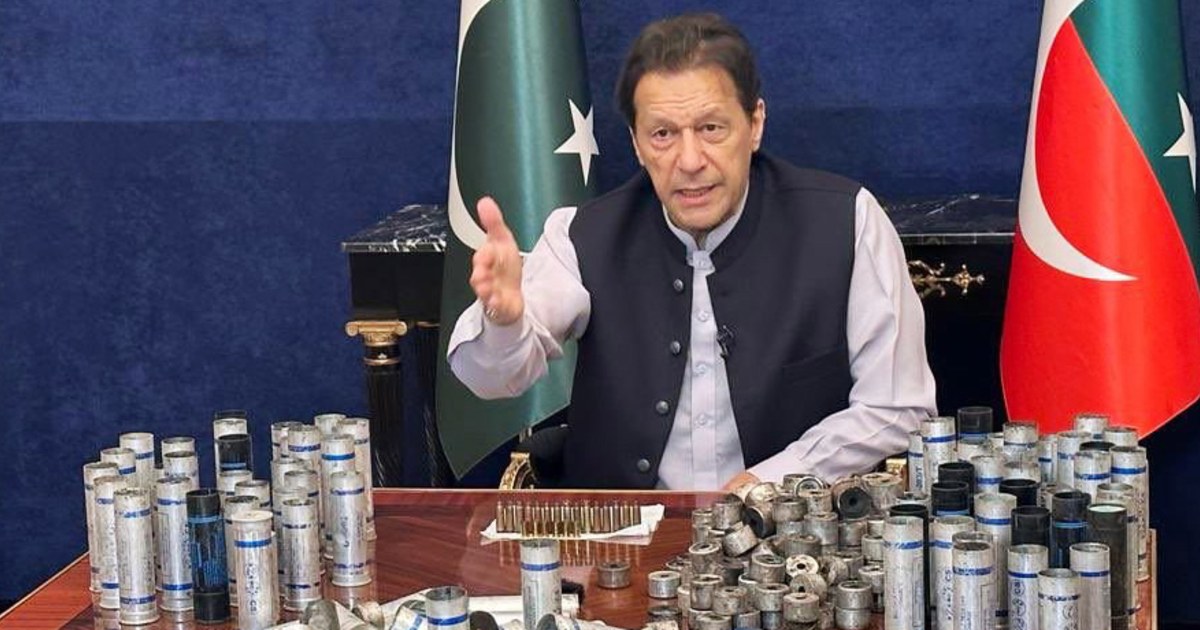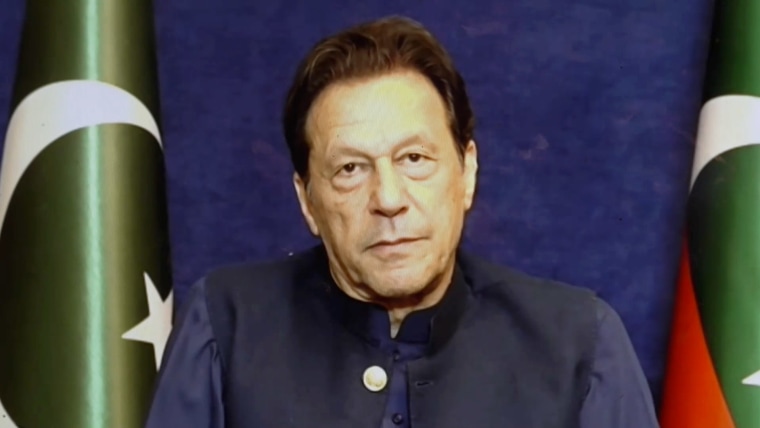Later, Khan posed for cameras seated at a long table, displaying stacks of spent tear gas shells that he said had been collected around his home.
«What a crime I committed that my house has been attacked like this,» he tweeted. Fawad Chaudhry, a senior leader of Khan’s party claimed that hundreds of Khan’s supporters were injured.
At the Islamabad High Court, Khan’s lawyer, Khawaja Haris, applied for a stay of the arrest warrants against the former prime minister, but the court rejected the motion.
Khan, who was ousted in a vote of no confidence in parliament in April, was ordered to appear before a judge in Islamabad on Friday to face charges that he illegally sold state gifts he had received during his tenure as prime minister and concealed his estate.
The former prime minister has avoided court appearances since November, when he was injured in a shooting attack at a protest rally in the eastern Punjab province, claiming he was not medically fit to travel from Lahore to Islamabad to face the accusation.
Last week, he went to Islamabad to appear before three courts, but he did not appear before the fourth court to face the prosecution in the corruption case, which is a legal process to start his trial.
Khan has claimed that the series of cases against him, which include terrorism charges, are a plot by the government of his successor, Prime Minister Shahbaz Sharif, to discredit the former cricket star turned Islamist politician.
The situation in Lahore calmed down in the early afternoon and the police stepped back, apparently to ease tensions. This encouraged more of Khan’s followers to join those outside and inside his house. Many chanted Allahu akbar, the Arabic phrase for «God is great,» as Khan, still wearing a gas mask, greeted them.
Azhar Siddique, another of Khan’s lawyers, said the Lahore High Court ordered police to halt the operation in front of Khan’s home until Thursday, though they would remain deployed nearby.
The Punjab provincial government said Wednesday that more than 100 policemen were injured in clashes with Khan’s supporters. They denied Khan’s claim that the officers were using live bullets.
From his home, Khan urged his supporters on Tuesday to keep fighting even if he is arrested. “They think this nation will fall asleep when Imran Khan is jailed,” he wrote on Twitter. «You have to prove them wrong.» On Wednesday, he tweeted that there was a plot «to kidnap and kill him.»
Prime Minister Sharif criticized Khan in televised remarks on Wednesday, saying the former prime minister «considers himself above the law and has been defying court orders to avoid arrest.» Sharif insisted that he had nothing to do with the arrest warrant, that he said it was a court order and that the police were only following it.
In Pakistan’s turbulent political history, at least seven former prime ministers have been arrested in various cases and tried by courts since the South Asian country was created in 1947 after gaining independence from British colonial rule.
Former Prime Minister Zulfikar Ali Bhutto was hanged by the military government in 1979 after he was overthrown in a coup. His daughter, Benazir Bhutto, served twice as prime minister and was assassinated during a 2007 election rally in the garrison city of Rawalpindi.
Nawaz Sharif, Pakistan’s longest-serving prime minister and brother of the current prime minister, held the post from 1990 to 1993 and from 1997 to 1999, when he was ousted in a military coup by General Pervez Musharraf. He returned as prime minister in 2013 but was ousted by the country’s Supreme Court in 2017. He was later arrested, tried and convicted in a corruption case, though he has always denied the charges and today lives in exile in Britain.


